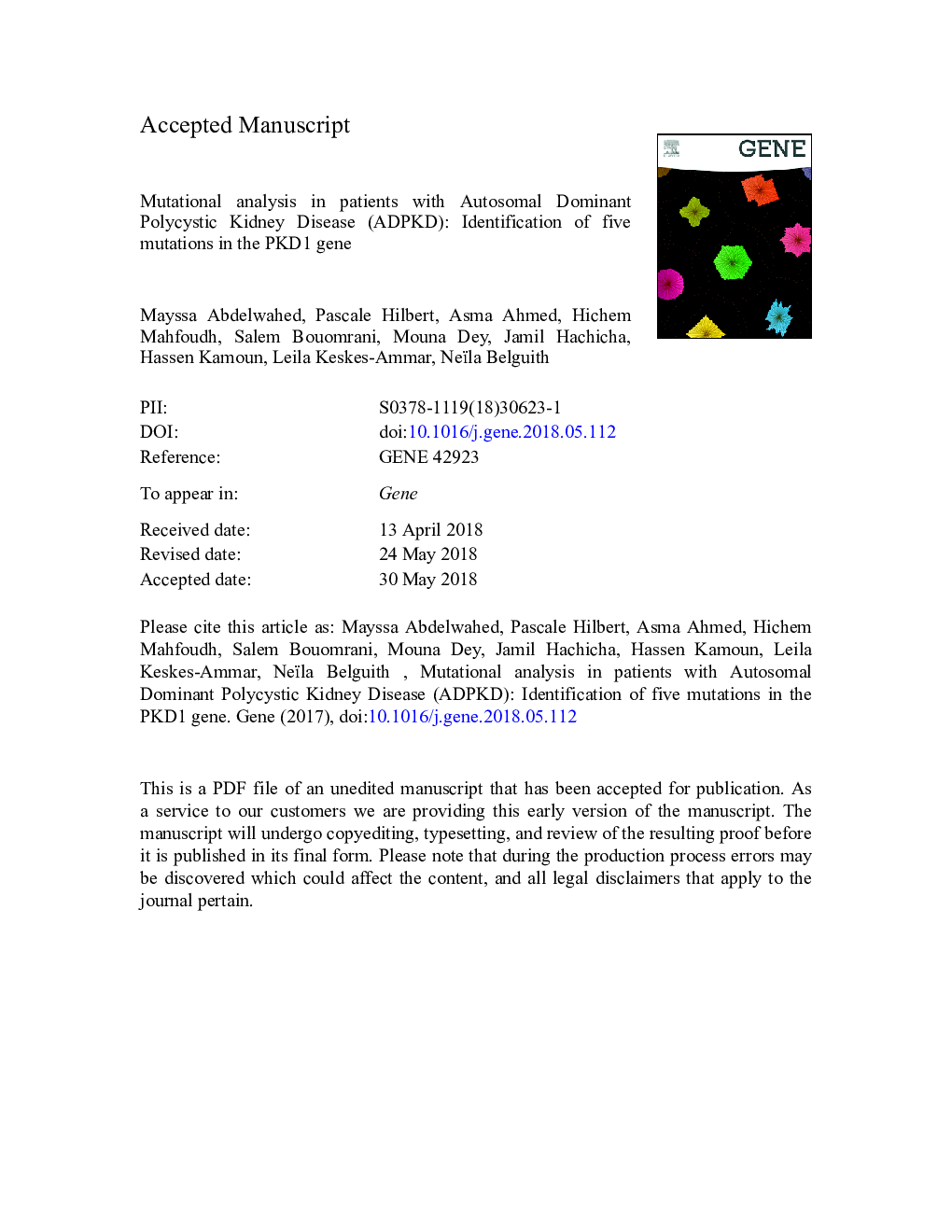| Article ID | Journal | Published Year | Pages | File Type |
|---|---|---|---|---|
| 8644669 | Gene | 2018 | 23 Pages |
Abstract
Autosomal Dominant Polycystic Kidney Disease (ADPKD), the most frequent genetic disorder of the kidneys, is characterized by a typical presenting symptoms include cysts development in different organs and a non-cysts manifestations. ADPKD is caused by mutations in PKD1 or PKD2 genes. In this study, we aimed to search for molecular causative defects among PKD1 and PKD2 genes. Eighteen patients were diagnosed based on renal ultrasonography and renal/extra-renal manifestations. Then, Sanger sequencing was performed for PKD1 and PKD2 genes. Multiplex Ligation dependent Probe Amplification method (MLPA) methods was performed for both PKD genes. Mutational analysis of the PKD2 gene revealed the absence of variants and no deletions or duplications of both PKD genes were detected. But three novels mutations i.e. p.S463C exon 7; c. c.11156+2T>C IVS38 and c.8161-1G>A IVS22 and two previously reported c.1522T>C exon 7 and c.412C>T exon 4 mutations in the PKD1 gene were detected. Bioinformatics tools predicted that the novel variants have a pathogenic effects on splicing machinery, pre-mRNA secondary structure and stability and protein stability. Our results highlighted molecular features of Tunisian patients with ADPKD and revealed novel variations that can be utilized in clinical diagnosis and in the evaluation of living kidney donor. To the best of our knowledge, this is the first report of Autosomal Polycystic Kidney Disease in Tunisia.
Keywords
Multiplex Ligation Dependent Probe AmplificationdbSNPLR-PCRPKDPC2DDGPRKCSHSEC63ESEADPKDPC1REJhsfMLPAWSCSIFTExACBasic Local Alignment Search Toolexonic splicing enhancerHuman Splicing FinderBlastsplice variantsimmunoglobulin-likeESRD یا end stage renal diseaseEnd-stage renal diseasepolycystic kidney diseaseautosomal dominant polycystic kidney diseaseLeucine rich repeatNovel mutationsGPSSorting Intolerant From TolerantSingle Nucleotide Polymorphism DatabasePolycystin-1Polycystin-2Exome Aggregation Consortium
Related Topics
Life Sciences
Biochemistry, Genetics and Molecular Biology
Genetics
Authors
Mayssa Abdelwahed, Pascale Hilbert, Asma Ahmed, Hichem Mahfoudh, Salem Bouomrani, Mouna Dey, Jamil Hachicha, Hassen Kamoun, Leila Keskes-Ammar, Neïla Belguith,
